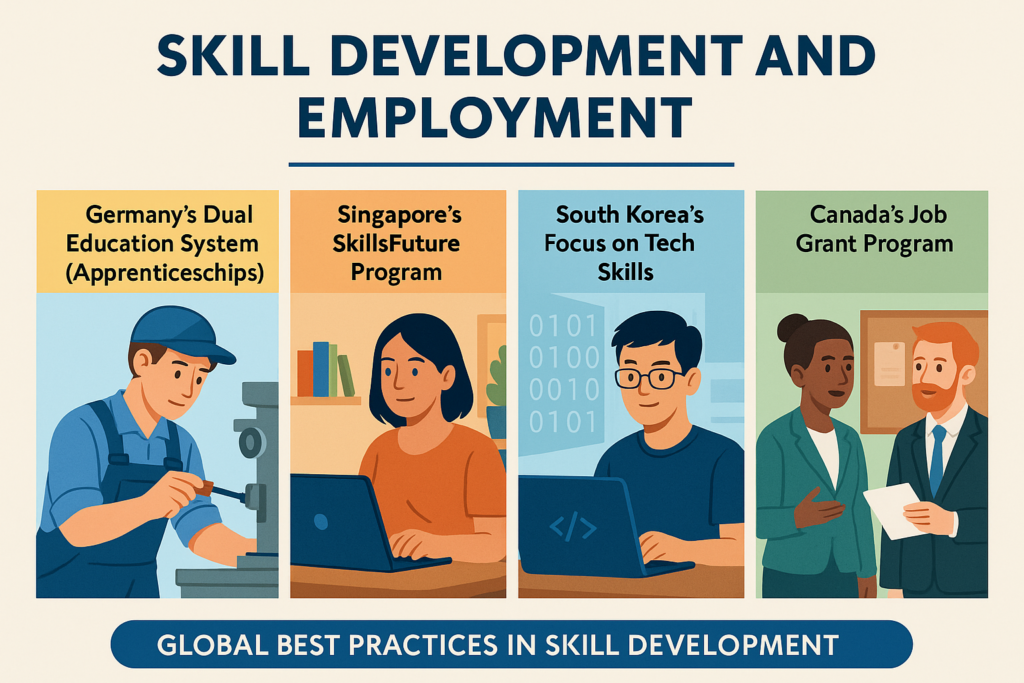What is Skill Development and Employment?
- Skill Development means learning new skills or improving existing ones to be ready for jobs. This can include technical skills (like coding or machinery operation) and soft skills (like communication and teamwork).
- Employment is all about having a job where people can use their skills to earn a living

Now, different countries have developed unique ways to improve skills and create jobs. Let’s look at some global best practices.
Global Best Practices in Skill Development
- Germany’s Dual Education System (Apprenticeships):
- How it works: Students spend part of their time in a classroom learning theory and the rest in companies getting hands-on experience.
- Why it’s effective: It bridges the gap between education and real-world jobs, making students job-ready.
- Singapore’s Skills Future Program:
- How it works: The government provides credits to citizens to take courses and improve their skills, even later in life.
- Why it’s effective: It encourages lifelong learning and helps people stay competitive in the job market.
- South Korea’s Focus on Tech Skills:
- How it works: South Korea invests heavily in technology and digital skills, offering free online courses and coding bootcamps.
- Why it’s effective: It has created a highly skilled tech workforce, leading to strong economic growth in IT sectors.
- Canada’s Job Grant Program:
- How it works: The government helps businesses pay for training their employees, so workers get new skills while on the job.
- Why it’s effective: It strengthens the workforce without businesses having to bear all the training costs.
- Sweden’s Flexible Work Policies:
- How it works: Sweden promotes work-life balance with flexible hours and strong support for parental leave.
- Why it’s effective: It increases productivity and ensures more people, especially women, can participate in the workforce.
Lessons We Can Learn:
- Link Education to Jobs: Training should be practical, with real-world applications.
- Promote Lifelong Learning: Skills are not just for youth; everyone can learn new things throughout their career.
- Government and Private Partnerships: When governments and businesses work together, they can create more opportunities.
- Support for Everyone: Programs should be inclusive, helping people from all backgrounds, including women, minorities, and people with disabilities.
- Focus on Emerging Skills: Embrace technology and future-oriented skills like digital literacy, data analysis, and green jobs.
Summary:
Countries like Germany, Singapore, South Korea, Canada, and Sweden have successful models for skill development and job creation. Germany’s apprenticeship system blends classroom learning with hands-on experience. Singapore promotes lifelong learning through skill credits. South Korea focuses on tech skills, while Canada supports workplace training through job grants. Sweden’s flexible work policies encourage workforce participation. Key lessons include linking education to jobs, promoting lifelong learning, fostering public-private partnerships, and focusing on emerging skills for future growth.







